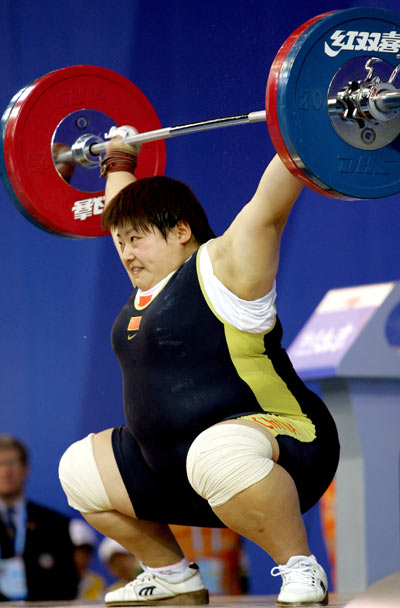Personality Traits as Natural

See part I, Personality Traits as Potentia.
A further difficulty I have encountered when talking about personality traits such as conscientiousness is their heritability. When I say that a personality trait like C is about 50% heritable, I am often greeted with unbelief. How can this be so?
This is so because personality traits are natural, in the fullest sense of the word. By this, I mean that the traits of openness to experience, conscientiousness, extraversion, agreeableness, and neuroticism, are part of our shared human nature, and can be expected to have all the properties that implies.
The first thing to do is define natural. This is hard, because it is an analogous name, with many different, but related meanings. What I mean by natural is what Aristotle and Aquinas meant: a nature is an inner source of activity that makes a thing to be what it is. The word comes from the Latin natus, to be born. The contrary of this is artificial, and by this I mean art as something created by means of the directive actions of a mind.
Let us consider an example borrowed from Mike Flynn. The strength of our muscles is something we are all familiar with. It is clear that some people are stronger than others. But what is the source of these differences? You can be either naturally strong, or artificially strong. Consider that without the benefit of exercise, some people are simply larger and more powerful. Now clearly, the level of everyday activity that a person sees will influence how strong they are. Typically, a lumberjack is stronger than an accountant. But let us imagine we are dealing with people who do the same things, so that factor is held constant. The level of strength each person has will be determined by their individual nature, some more, some less.
Now, if look at the art of exercise, we can increase our strength above our natural strength. Thus, by diligent application, the weaker can become stronger. However, if we again hold the level of activity constant, those with greater natural strength will probably end up stronger too, because there is more potential strength in their nature. This is not necessarily always so, but with human strength it seems to be so.
So then, human strength is a combination of nature and art. For any given person, some amount will be natural, and some amount artificial. One way you can tell the difference between nature and art is that if you take away the art, nature will reassert itself. If you stop going to the gym, your strength will return to its natural level. Now, clearly, it is possible to cause natural strength to wither away too. But Aristotle's concept of nature overlaps with what we would call normal. If you deny a man food and space to move around in, as prisoners in a gulag perhaps, their natural strength will be diminished. But to speak of the natural always means to analyze what is needed for the nature to function, some minimum level of food and activity. To say that a thing is natural does not mean it operates like magic.
So what does this mean for personality traits? If the OCEAN traits are natural, then that means that they are at least partly material, in the Aristotelian sense, which means that they can be heritable in the same way that any biological traits are. Thus we should not be surprised that children are like their parents in these traits. It also means that if you take away what people need to actualize these traits, they will suffer for it. In the case of g, nutrients like iron and iodine are important for brain development. Take them away during childhood, and a person will never be the same. Also, it means that these traits can be affected by art over and above their natural levels, but where you start influences where you end up.
Consider Olympic weightlifting. How many gold medal weightlifters are petite, small-framed people? This is not to say that a 5 foot, 90 lb. woman couldn't take up Olympic weightlifting. It is a powerful exercise for building strength. But, I doubt she'll be lifting 150kg no matter how hard she tries. Her nature lacks the potential for that.

Artificially strong

Naturally and artificially strong
I'n not impugning the strength of Annie in the first picture. She is probably stronger than me. However, there is a clear difference between here and Huang Huan, gold medal winner at the Beijing Olympics. Huang has a much different build than Annie, and is probably naturally stronger. Then Huang built up her strength to truly amazing levels. Huang is both naturally and artificially strong.
Personality traits are much the same. Different people are born (natus) with differing endowments of traits. It is pretty clear that lacking conscientiousness is generally a bad thing, in the same way that being weak and sickly is a bad thing. But, no trait of this kind is unaffected by what you do. This is what personal development is all about. Having low agreeableness does not have to mean you are rude. You can learn manners. It will be harder, and someone with low A will probably never be truly suave, but you can learn how to behave in such a way that social friction is decreased. Manners are the art by which we strengthen agreeableness.
The objective with any kind of behavioral modification like this [Aristotle would have called it cultivation of the virtues] is to develop a habit to the point where it becomes literally a second nature, but experience will show that just like exercise, you need to keep it up or the first nature will have its revenge. If we turn to g, this is the explanation for the fadeout effects that are seen with any kind of intervention to raise intellectual ability. If you look at kids in Head Start, or anything like it, you will see a big effect at first, but if you look a few years later, you almost cannot tell any difference. Nature is reasserting itself, because after kids get out of Head Start, they are no longer performing the mental exercise that artificially raised their academic ability.
Viewing personality traits as natural thus can help explain what we see. Conscientiousness really is heritable, but that does not mean you can't learn to straighten up your house and do things on time if you C is low. It does however mean it will probably be really hard. You literally have to work against your own nature. Someone with a high C will do those things easily, naturally. Just the same with g. It is entirely possible to raise IQ artificially, but if you stop the intervention, you will lose the effect. Unless of course, you know how to change the underlying nature. Which to the best of my knowledge, we do not.

Comments ()